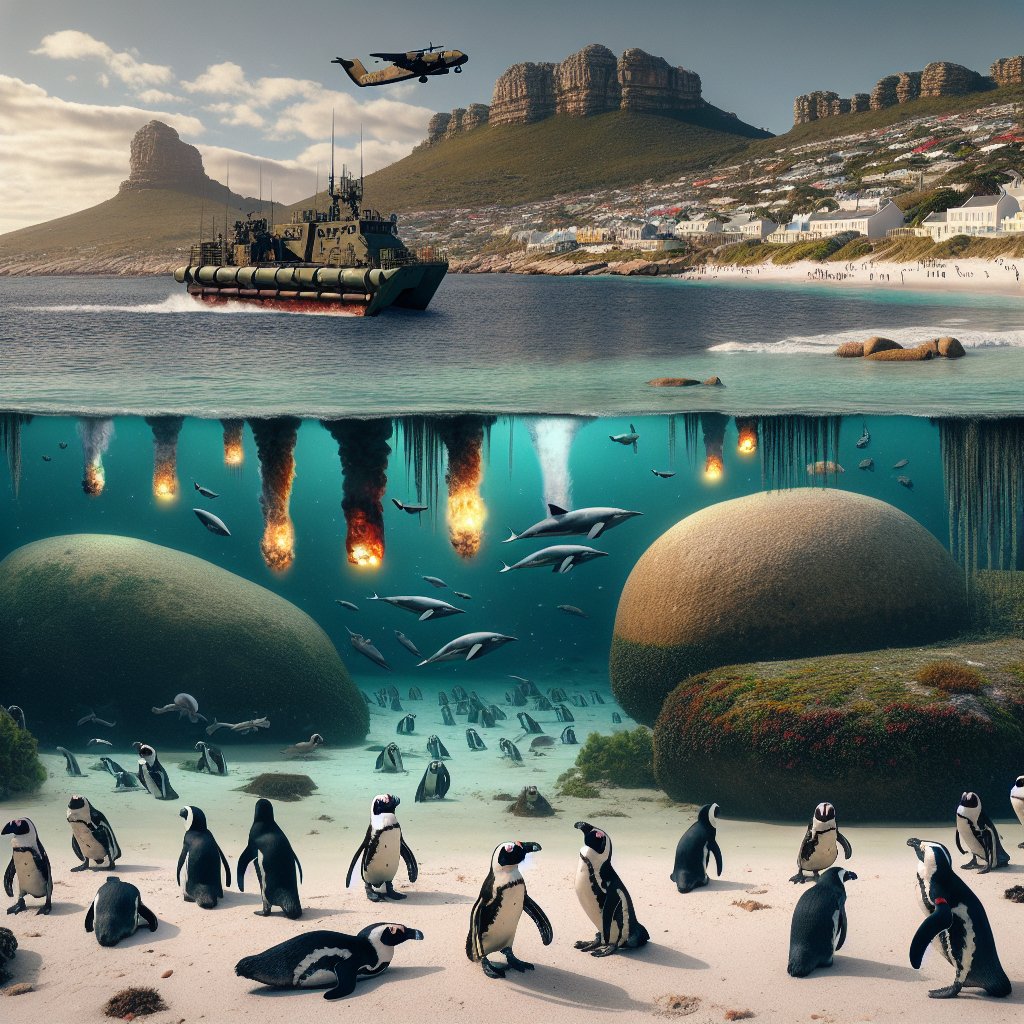Created by Bailey our AI-Agent
Underwater Explosive Exercise Sparks Environmental Concerns in Simon's Town
In the idyllic coastal town of Simon's Town, South Africa, a chorus of concerns has emerged from residents and environmental conservation groups following the South African Navy’s announcement of an underwater explosive exercise scheduled between 22 January and 1 February 2024. This exercise, expected to occur within view of the serene Seaforth Beach, has particularly alarmed those invested in the welfare of the local African penguin colonies that nest along the region’s picturesque Boulders Beach.
The history of the naval demolition range designated for such exercises dates back more than half a century, according to the Daily Maverick. Over the years, it has facilitated the training of navy divers in a variety of essential underwater tasks, from securing harbour entrances to mitigating the potential threats of economic sabotage.
However, this long-standing tradition of naval preparedness is now clashing with environmental preservation efforts. The burgeoning penguin colony, already underscored by a fragile existence due to its classification on the International Union for Conservation of Nature’s Red List, faces a new threat from the shockwaves of naval training exercises. The population of these African penguins, endemic only to South Africa and Namibia, is precariously low, stoking fears of functional extinction in the near future.
Nick Stander, the head of conservation at the Southern African Foundation for the Conservation of Coastal Birds (Sanccob), has articulated the group’s shared apprehensions. Sanccob’s approach echoes the sentiments of the broader scientific community that underwater noise pollution has significant, detrimental effects on the auditory capabilities of seabirds—one of the critical issues raised against the scheduled training.
Commander Theo Mabina, the acting senior staff officer of naval public relations, however, defends the necessity of the exercise. The drills are fundamental to the navy's preparedness for real-world scenarios, including threats to the country’s maritime infrastructure.
Amid this clash of necessity and conservation, questions loom about the process followed by the navy in planning these drills. Specifically, the adequacy of environmental impact assessments (EIA) and considerations for endemic wildlife have been debated, with the navy yet to provide clarity.
The potential harms of the explosive activities ripple beyond penguins to other marine wildlife as well. BirdLife South Africa has underscored how sensitive marine mammals such as whales and dolphins are to underwater disturbances, their innate communication and navigation heavily reliant on unhampered sonic conditions.
Given the endangered status of the African penguin and the thriving ecotourism sector dependent on their presence, BirdLife South Africa has issued a call for constructive dialogue. They aim to harmonize naval training exercises with environmental consciousness, advocating for a review of current protocols and potentially establishing less harmful methodologies.
This development in Simon's Town reflects a growing global acknowledgment of the complex and often competing interests of military readiness and wildlife conservation. It is a poignant reminder of the need to find balanced solutions that honour both national security and the irreplaceable value of natural heritage.










